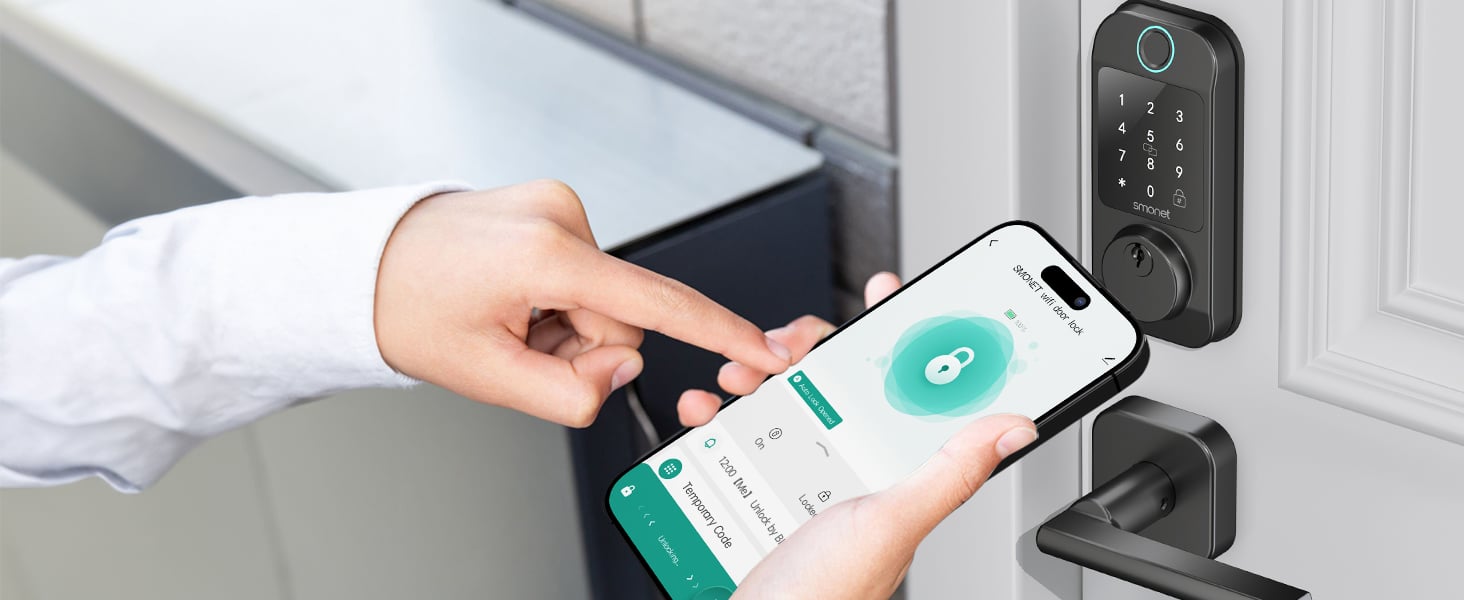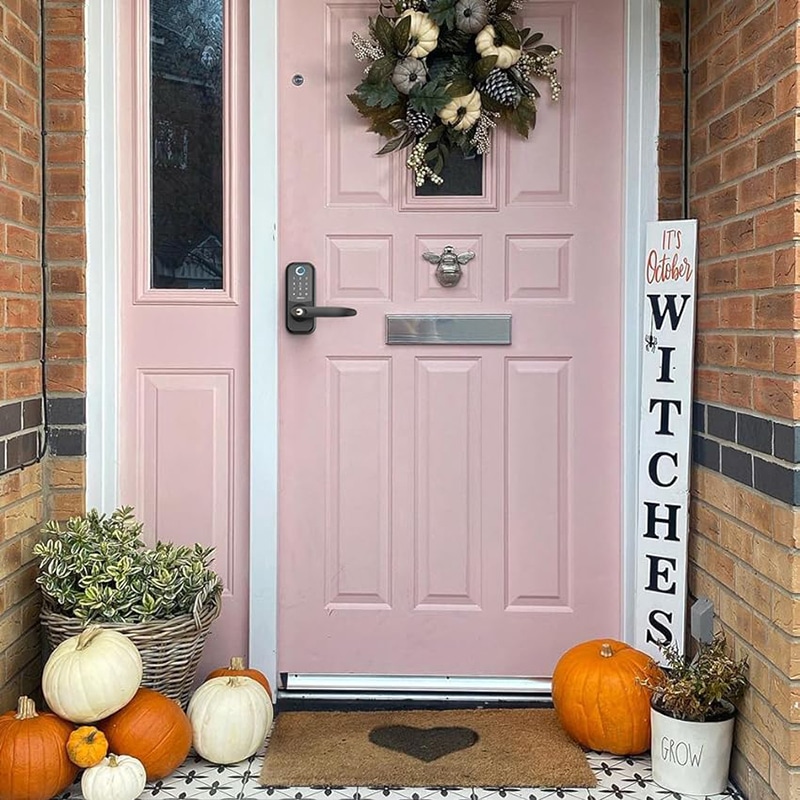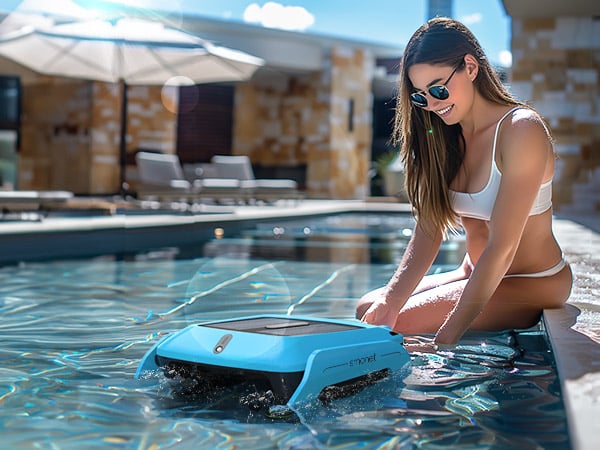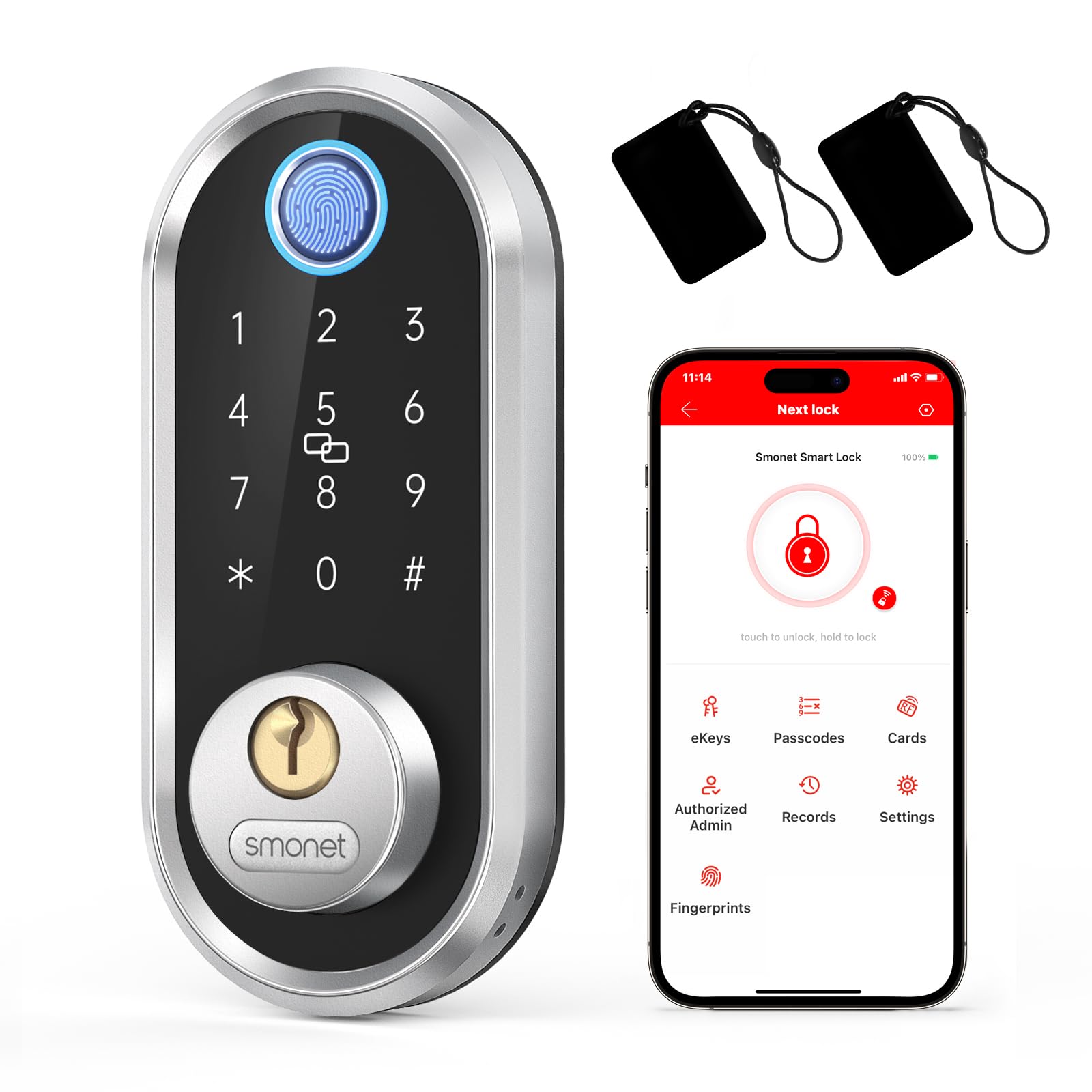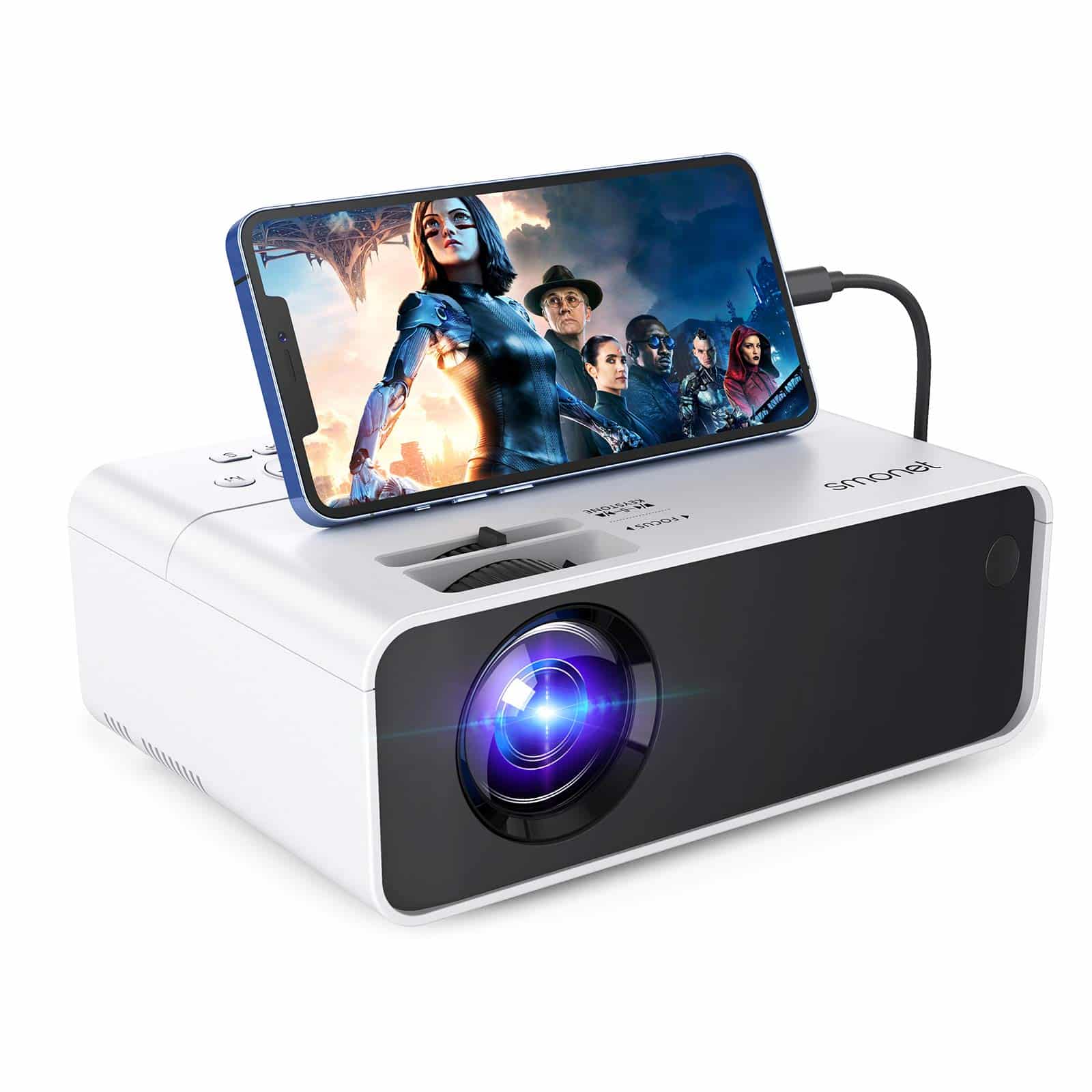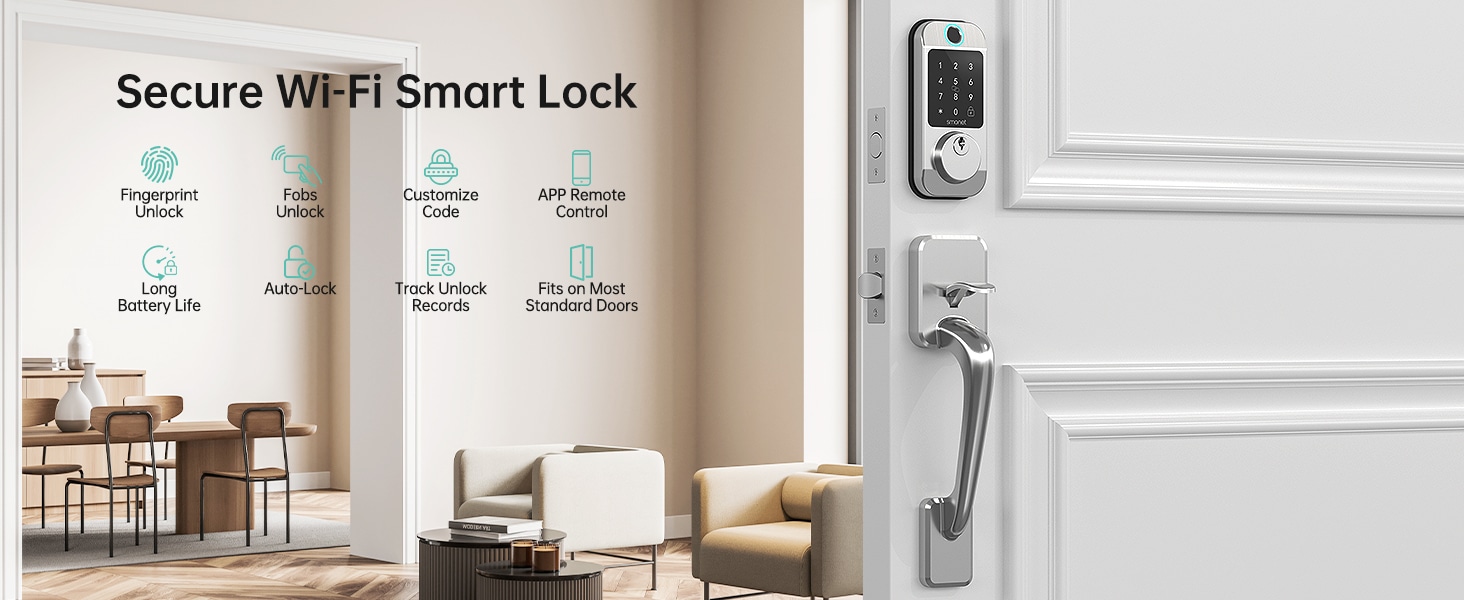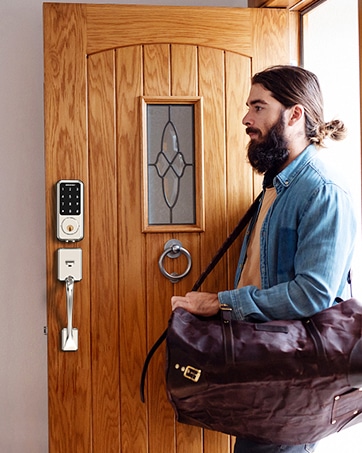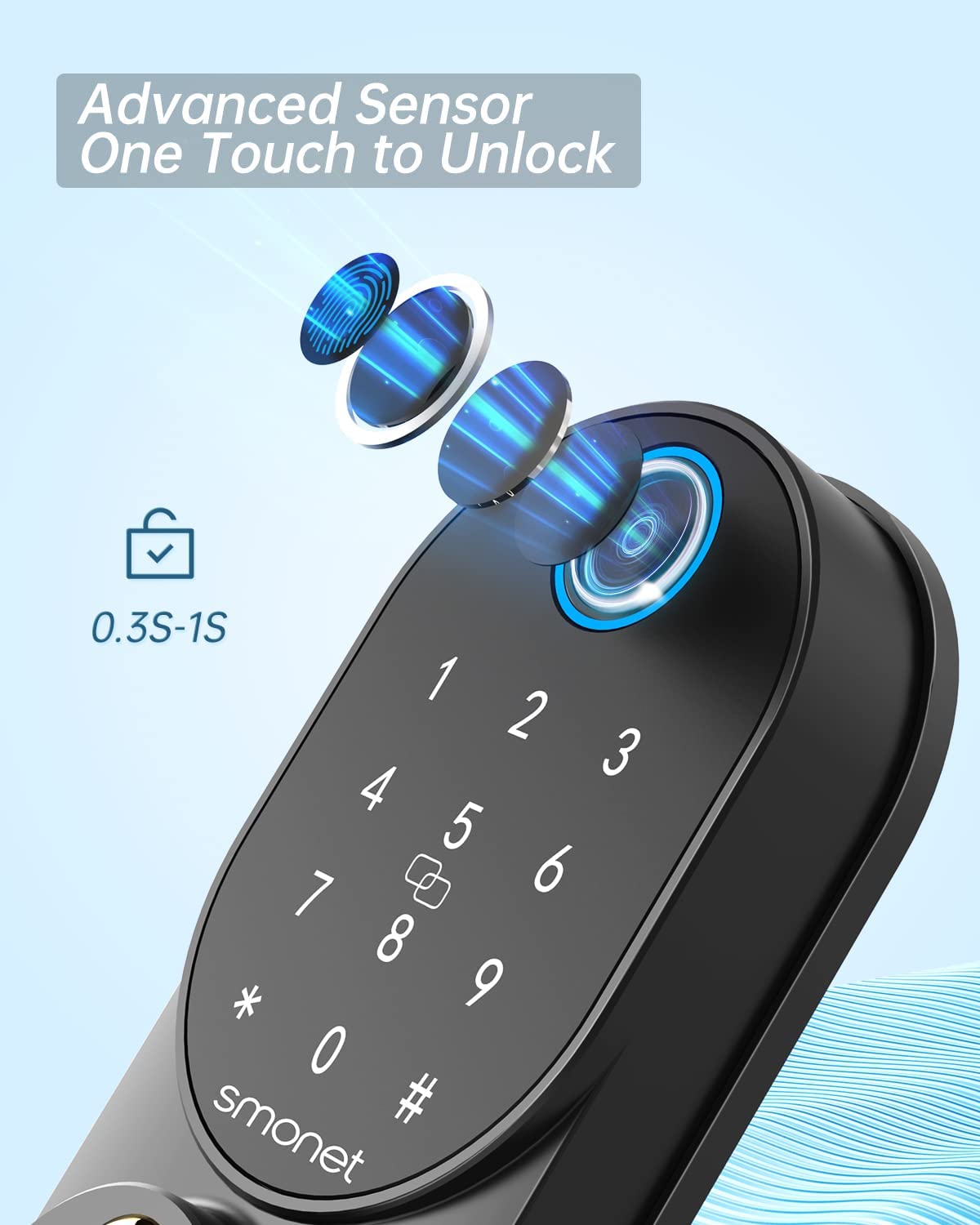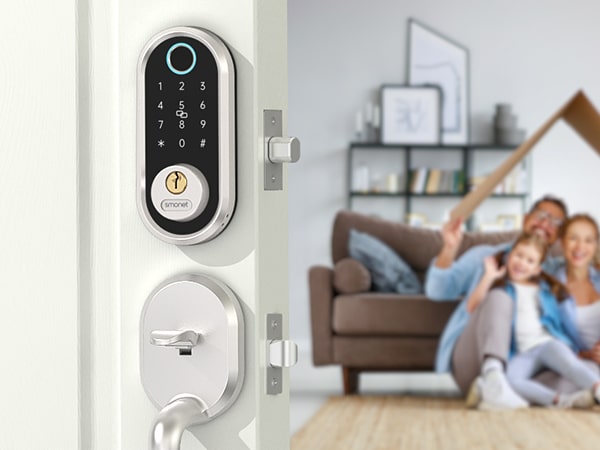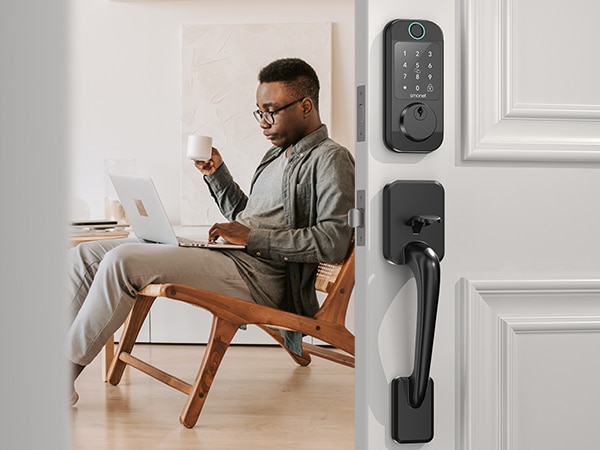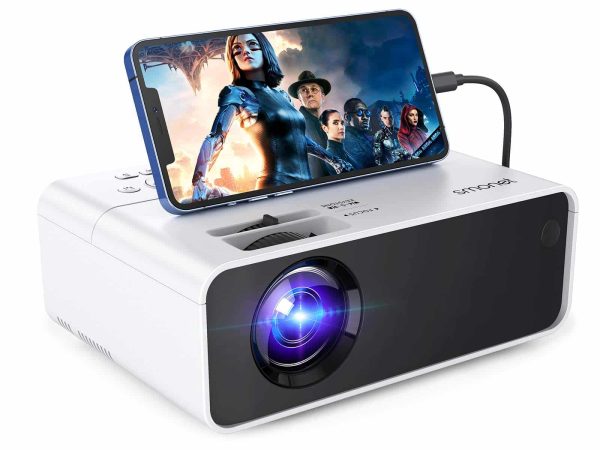How Families With Disabled Individuals Can Choose The Right Door Locks
Choosing the appropriate door lock can be a complex decision, particularly for families who must consider the needs of individuals with disabilities. It’s essential to find a solution that ensures both security and accessibility. Fortunately, there are a variety of adaptive automatic door locks available on the market that cater to these needs.
When selecting a smart lock for front door that is compatible with Alexa, families should consider the following factors:
- Accessibility Features: Look for locks that offer features such as keyless entry, remote access, or smartphone controls. These options can be particularly beneficial for individuals who may have limited dexterity or mobility.
- Voice Activation: Since Alexa can be integrated with many smart locks, ensure that the lock you choose supports voice commands. This allows users to unlock the door without needing to physically interact with the lock, enhancing convenience for those with mobility challenges.
- Security Ratings: It’s critical to choose a lock that meets industry standards for security. Check for ratings from organizations such as the American National Standards Institute (ANSI) to ensure the lock provides adequate protection against break-ins.
- Ease of Installation: Select a lock that is straightforward to install. Some locks might require professional installation, while others can be easily set up by the homeowner, which can be advantageous for families seeking to minimize disruptions.
- Durability and Weather Resistance: If the door lock is exposed to the elements, ensure it is made from durable materials that can withstand weather conditions. This factor contributes to the longevity and reliability of the lock.
- User-Friendly Apps: Many smart locks have associated mobile apps that allow for the management of access permissions and monitoring of the lock’s status. Choose one that has an intuitive interface for easier navigation.
By taking these factors into account, families can find a smart lock that not only enhances security but also meets the accessibility needs of all family members, ensuring peace of mind and convenience in their daily lives.
Table of Contents
Selecting the appropriate best front door locks is a critical decision, particularly when it comes to accommodating a family member with disabilities. The first step in this process is to thoroughly assess their unique needs, taking into account their physical abilities and limitations.
For example, if a family member has mobility issues that impact their hand function, traditional locks, such as those requiring a key or a small knob to turn, might be challenging for them to use. In such cases, consider options like lever-style handles, which can be easier to operate, or wifi door lock with handle that can be opened with a smartphone app or keypad, reducing the need for precise hand movements.
Additionally, assess the height at which the lock is installed to ensure it is easily accessible. It may also be beneficial to explore locks that have visual or auditory signals for those with sensory impairments. Ultimately, focusing on the specific requirements of the individual will guide you in selecting a door lock that enhances their independence and safety.
Keyless entry door locks, commonly referred to as smart locks, offer a smart and convenient solution for securing your home. These advanced locks eliminate the traditional requirement of using a physical key, which can present challenges for individuals with disabilities or those who may have difficulty manipulating small objects.
Keyless door entry lock typically utilize various forms of access, including customizable access codes that can be easily shared with family members or trusted guests. Additionally, many models are equipped with biometric technology, such as fingerprint scanning, allowing users to unlock their doors with a simple touch. This feature not only enhances security but also offers a quick and efficient way to enter without fumbling for keys.
Furthermore, many keyless entry systems can be operated remotely through smartphone applications, enabling users to lock and unlock their doors from virtually anywhere. This is particularly beneficial for individuals with mobility issues or those who may be carrying items and need to enter their home without the hassle of searching for keys. Overall, smart locks provide a blend of convenience, security, and accessibility, making them a valuable addition to modern homes.
For individuals with mobility impairments, the task of physically accessing the door to lock or unlock it can pose significant challenges, often requiring considerable effort and energy. To enhance convenience and accessibility, locks equipped with remote access capabilities provide a practical solution. These best wifi door lock can be easily controlled through a dedicated smartphone application or a handheld remote control device. With this technology, users have the freedom to securely lock or unlock their doors from any location within their home, eliminating the need to travel to the door each time. This not only improves safety but also greatly enhances the overall independence and quality of life for those who may have difficulties with movement.
For individuals with mobility disabilities, voice activated door locks offer a highly convenient and effective solution for enhancing home security. These innovative smart locks, which do not require a deadbolt, can be easily operated through specific voice commands. Users can simply announce their command, and the lock will respond accordingly, eliminating the need for manual handling.
Additionally, these smart safety door locks can seamlessly integrate with existing smart home assistants like Amazon Alexa, Google Assistant, or Apple HomeKit. This integration allows users to control not only their locks but also other smart devices in their home through voice commands, further simplifying their daily routines.
Overall, voice-activated locks are particularly beneficial for those with mobility or dexterity impairments, as they provide a hands-free option for securing their homes while enhancing overall accessibility and independence.
Large Levers
When searching for the best smart deadbolts with keypads, it’s essential to consider models that feature large levers instead of traditional small knobs. Large levers are especially advantageous for individuals who may have limited hand dexterity or strength, as they provide a more comfortable and secure grip. These levers require less force to operate, making it easier for users to lock and unlock their doors without straining their hands. Additionally, many of these smart deadbolts come equipped with advanced features, such as remote access, customizable access codes, and alerts for added security and convenience. By choosing a smart deadbolt with a keypad and large levers, users can enhance their home security while ensuring ease of use.
Professional Consultation
It’s a good idea to seek help from an occupational therapist or a disability equipment consultant. These professionals can provide valuable advice based on the specific disability and suggest the best options available.
Selecting the appropriate type of door lock is crucial for enhancing the independence and confidence of individuals with disabilities. Different disabilities may require specific features, such as ease of use, accessibility, and security. For instance, individuals with limited hand strength might benefit from locks that can be easily operated with a simple turn mechanism or a push-button system.
It is essential for families to carefully consider these unique needs and involve professionals, such as occupational therapists or accessibility consultants, in the decision-making process. These experts can provide valuable insights into the best options available, including keyless entry systems or locks that can be operated with assistive devices.
By making informed choices about keyless front door locks and other accessibility features, families can significantly improve their home environment, creating a safer and more welcoming space for individuals with disabilities. This not only fosters greater independence but also boosts the confidence of those navigating their daily lives at home.
Prime Day OFF
Until the End
-
Master Of Cleanliness: Visual Guide To Recognizing And Understanding Your Electric Pool Cleaners
-
Making the Right Choice for A Best Keypad Door Lock: A Guide Based on Material Consideration
-
The 7 Most Common Types of Locks for Home and Office Security
-
Door Knob With Fingerprint Identification- The Future Of Home Security
-
Selecting the Ideal Digital Door Lock Style and Color for Your Abode
-
Evolution Of Security- Smart Door Key Lock
-
Mailbox Digital Lock- Reinventing Mail Security In The Digital Age
-
Exploring Alternative Unlocking Solutions - Smart Lock Fingerprint Cards and Wristbands
-
Touch Id Door Locks- Next-Generation Security At Your Fingertips
-
Smonet Home Door Lock- The Future Of Home Security

